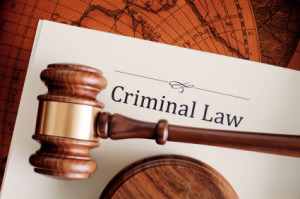 Arrested or facing criminal charges?
Arrested or facing criminal charges?
Criminal law addresses the government’s prosecution of individuals who have been accused of committing a crime. Such laws may be federal, state, or local. The prosecution represents the people of a particular jurisdiction, and acts on behalf of the government by bringing a case against an accused. Under the U.S. Constitution, a person accused of a crime may have the right to a criminal defense attorney during interrogations and certain other times before and during a trial.
Whether you are under police investigation, have been arrested, or are facing charges, having an advocate familiar with the criminal justice system.
Most jurisdictions classify crimes as felonies or misdemeanors, with felonies being the more serious offenses with the possibility of more severe sentences. Some criminal lawyers focus on a specific area of criminal defense law, such as white-collar crime, drug offenses, theft crimes, or violent crimes. You should consult with a criminal defense lawyer early on in the process to preserve options, such as diversion programs or plea bargains.
When hiring a criminal defense attorney, you should evaluate the experience and fee structure of the attorney. Some offer a free consultation to discuss your case.
Accomplice liability: If a person aids, assists, or encourages another in the commission of a crime, they are criminally liable as an accomplice to the crime.
Self-defense: The claim that an act otherwise criminal was legally justifiable because it was necessary to protect a person or property from the threat or action of another.
